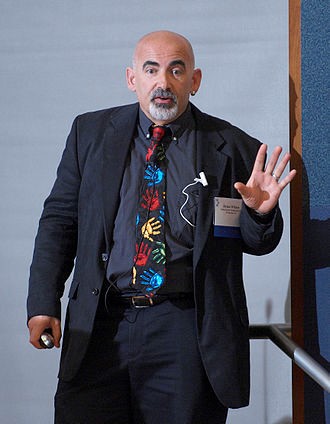Artificial intelligence: How it will—and won’t—change education
What every teacher needs to know about artificial intelligence
The rapid improvement in the ability of large language models such as Chat-GPT to produce sophisticated responses to natural language questions has led many to claim that artificial intelligence (AI) will revolutionize education. AI will, undoubtedly have profound implications for schools, teachers, and students, but there are also significant technical and ethical challenges that need to be addressed if AI is to improve education.
In this workshop, Dylan Wiliam will outline how large language models work, explore how AI will impact the world of work, and go on to show how AI-based tools will change schools and teaching.
The workshop will consider in detail how AI can help teachers with administrative tasks, and explore ways in AI can help teachers design more effective lessons, including ways in which AI can help students become more effective at managing their own learning.
AI will also radically affect how we assess our students. Some of these will be negative, in that, despite the assurances of those that sell AI detectors, it will almost certainly be impossible to detect AI use, and so the kinds of assessments we use will need to change. However AI also makes the assessment of authentic work less expensive, so the range of ways we can assess are students will expand drastically, without increasing teacher workload.
In additional to the technical challenges, AI-based tools present significant ethical challenges in educational settings. These include the increased surveillance of students, the tendency of such tools to be developed with data on neuro-typical students, rendering them less useful, or even harmful, for neuro-diverse students, with similar problems for students from minorities. The fact that the most sophisticated models are not “inspectable”, so the reasons for the choices made are not open to scrutiny, makes such issues even harder to address.
The workshop will conclude by investigating longer term issues, and in particular, exploring how the purpose of education will need to change as more and more of the work currently done by humans—particularly those done by those with the highest levels of academic credentials—are done by machines. Put bluntly, do we need to prepare our students for a world without work?
Ultimately, even the most powerful tools are unlikely to replace teachers, but—like most technology—they will allow teachers to spend more time doing things that only humans can do, and thus have the possibility to produce substantial improvements in education.


